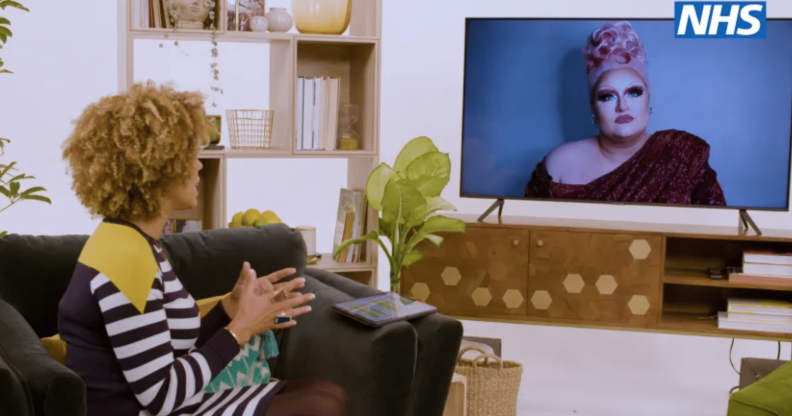Worrying number of queer women and trans people missing lifesaving cervical cancer screenings

Lesbian and bisexual cis women are more likely than their peers to have never had a cervical screening test, government figures have revealed, with worrying numbers of eligible trans men and non-binary people also missing out.
Figures from the Department of Health and Social Care (DHSC) found that 15 per cent of lesbian and bisexual women over 25 had never had a cervical screening test, compared with seven per cent of women over 25 in general.
Researchers explained that the disparity may come from a “misconception that those who do not have sex with men are not at risk of cervical cancer”.
In a separate survey of 137 trans men and non-binary people with cervixes, only 58 per cent of those eligible for screening had been screened. Just over half (53 per cent) said they felt they had sufficient information about cervical screening.
The figures come as Drag Race’sVictoria Scone joins a campaign by the DHSC and the NHS urging eligible people to have a smear test.
“Initially I was uncertain as to whether a cervical screening was imperative for me as a queer woman,” said Victoria.
“However, this new campaign has clarified that all women and people with a cervix, including those in the LGBTQ+ community like myself are eligible for a screening, so I booked myself in.
“I think it’s so important to openly talk about cervical screenings and encourage each other to attend theirs.”
Official NHS guidelines state that HPV can be passed on during sex between women, which means getting smear tests when invited could help prevent cervical cancer.
The NHS website states: “Sometimes health workers have advised lesbian women they do not need screening because they do not have sex with men. Or you may have been told by other lesbians that you do not need to be screened.
“However all individuals aged 25 to 64 who have a cervix should consider having cervical screening, regardless of their sexual orientation.
“HPV can be passed on during sex between women, although the risk of infection through heterosexual intercourse is thought to be higher.”
Trans and non-binary people avoid seeking healthcare over discrimination
The DHSC’s campaign hopes to remind the LGBT+ community that smear tests are an effective way to prevent cervical cancer, and that everyone with a cervix is eligible for screening.
Stewart O’Callaghan, founder of cancer support charity for the LGBT+ community Live Through This, explained that there can be “additional barriers” to smear tests for trans and non-binary people.
Previous findings indicated that nearly one quarter of transgender and non-binary people report avoiding seeking healthcare due to fear of being mistreated due to their gender.
O’Callaghan said: “Though there can be additional barriers for trans and non-binary people when accessing or attending a cervical screening appointment, it is important that all eligible people do consider booking in with their GP or local sexual health clinic to protect their own health.
“If you are feeling nervous, try calling the clinic ahead of time to talk about how they can help you to have a positive experience.”
The UK’s leading cervical cancer charity, Jo’s Cervical Cancer Trust, has also tried to break down the misconception that only cisgender women can get a smear test, after transphobes began a hashtag insisting that “only females get cervical cancer”.
The charity said on Twitter: “At Jo’s we want to ensure everyone with a cervix has access to the information and support they need to attend #CervicalScreening, regardless of their gender identity.”
The charity then added a link to its support page.

